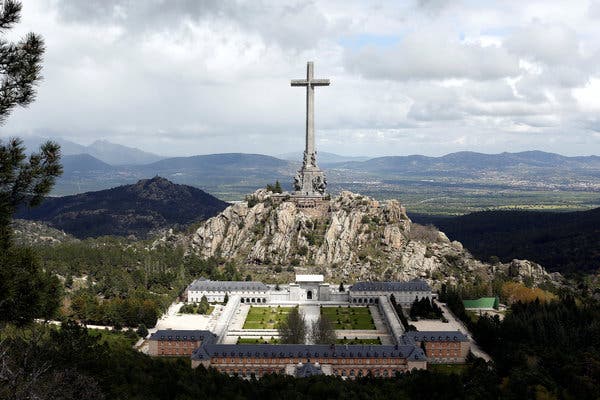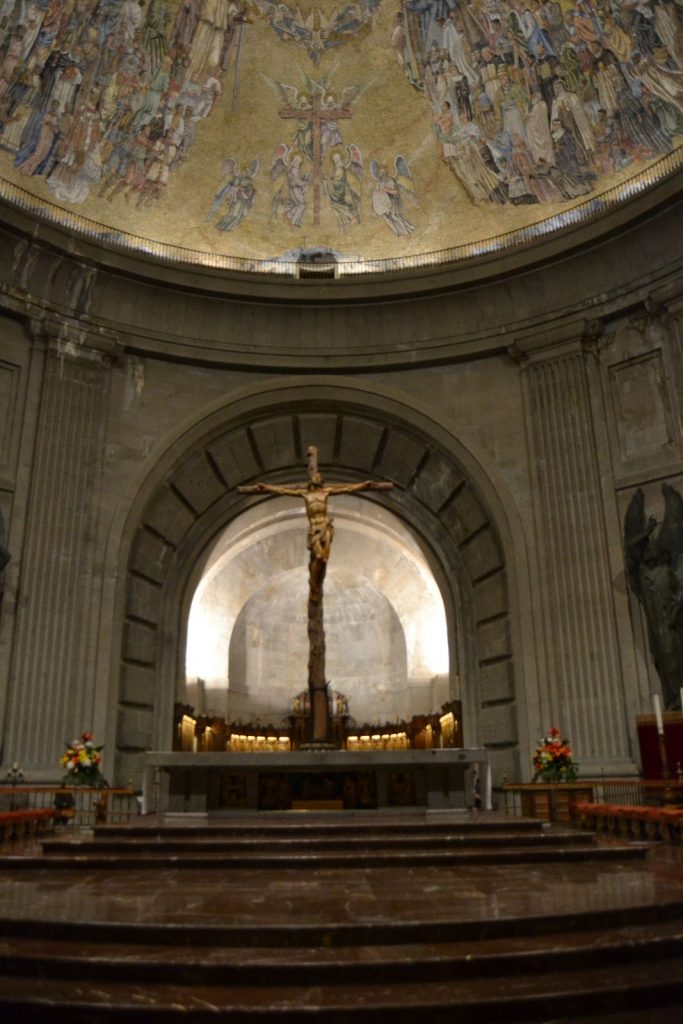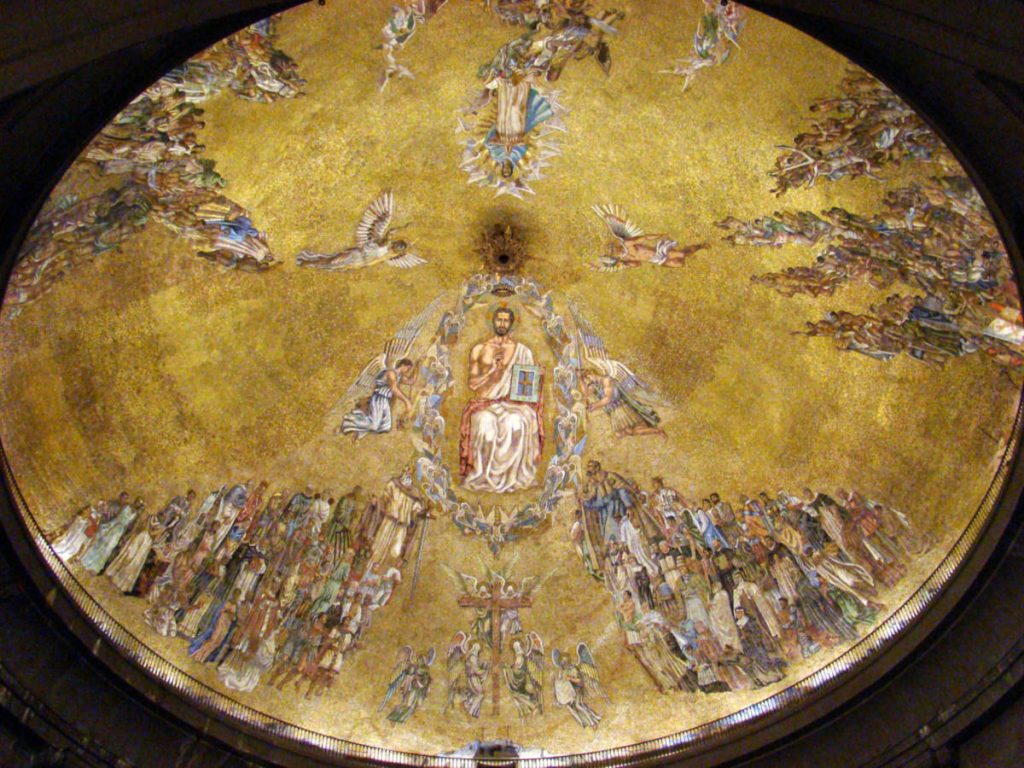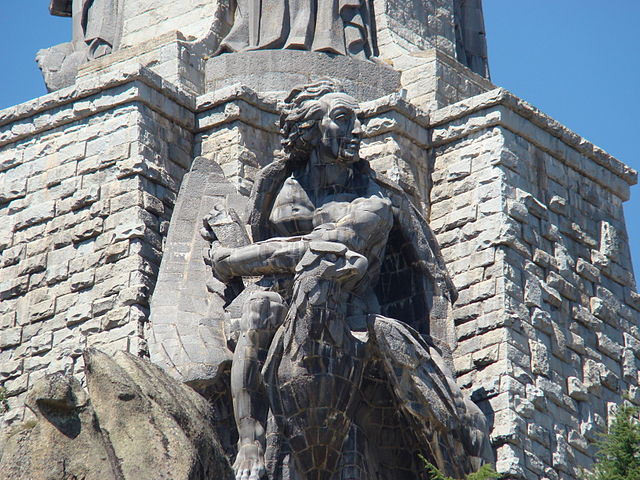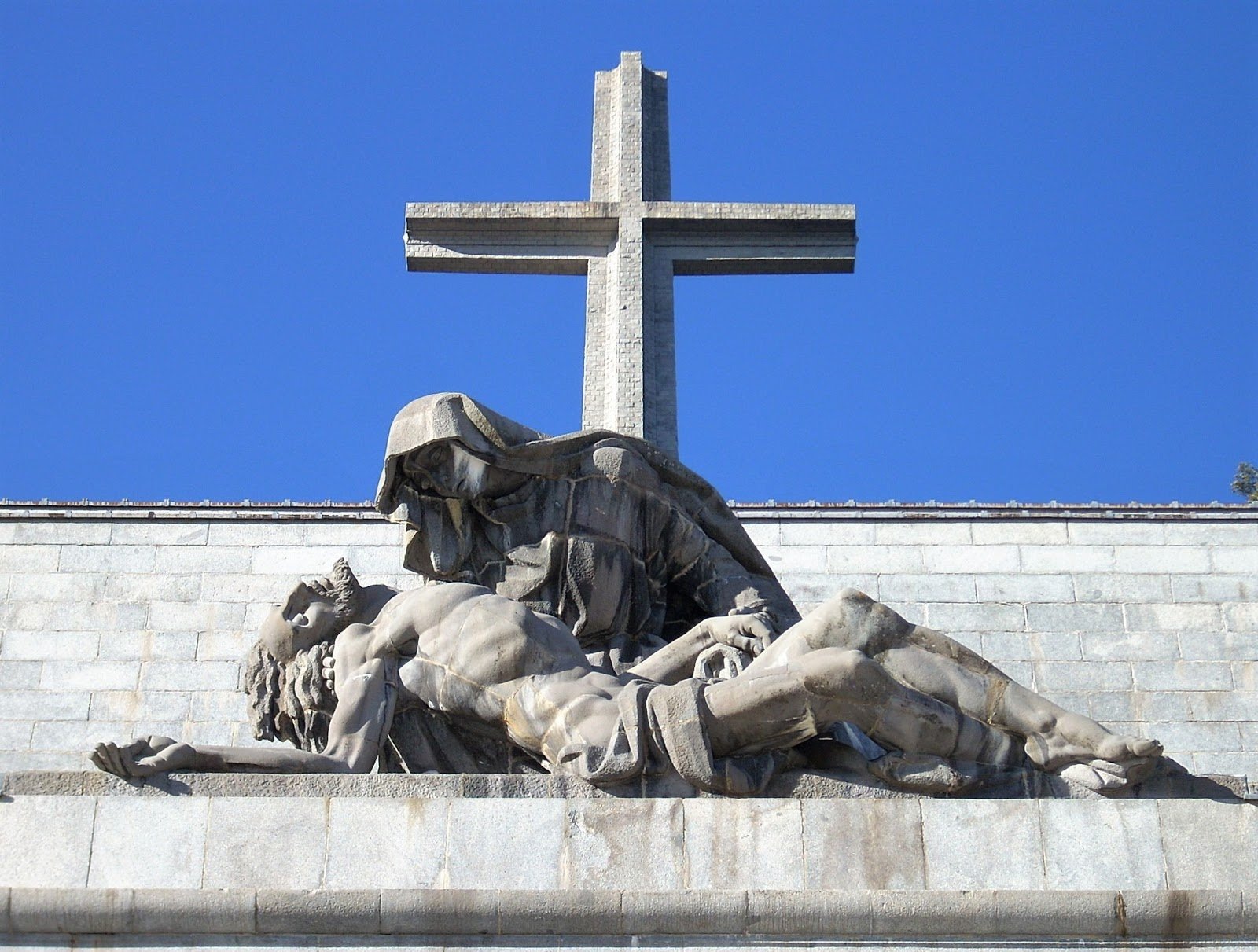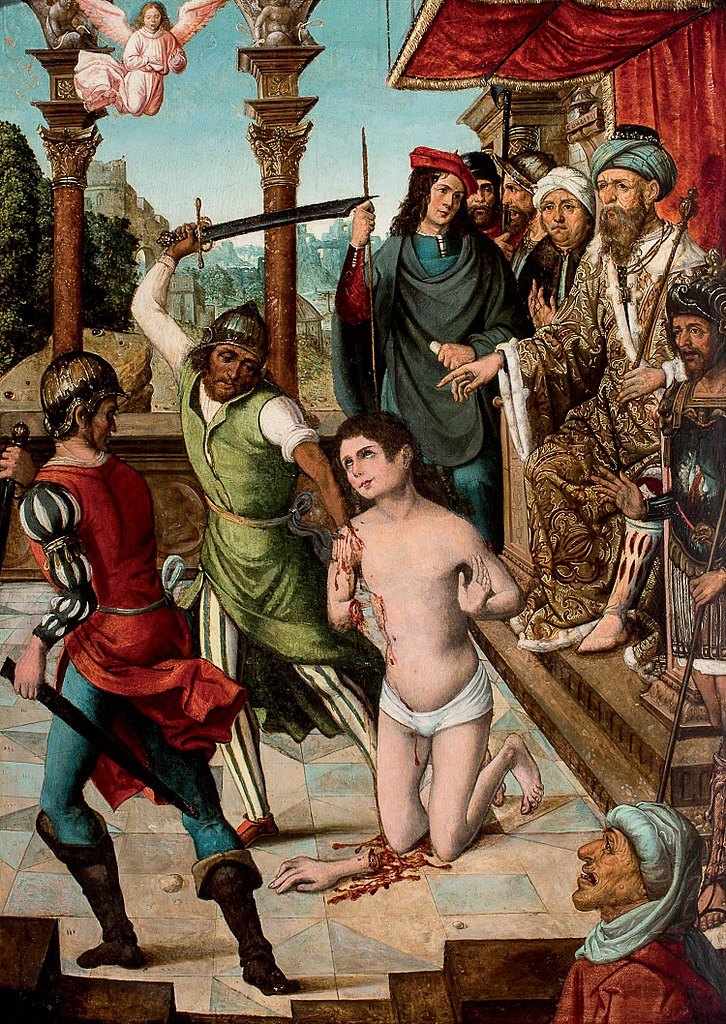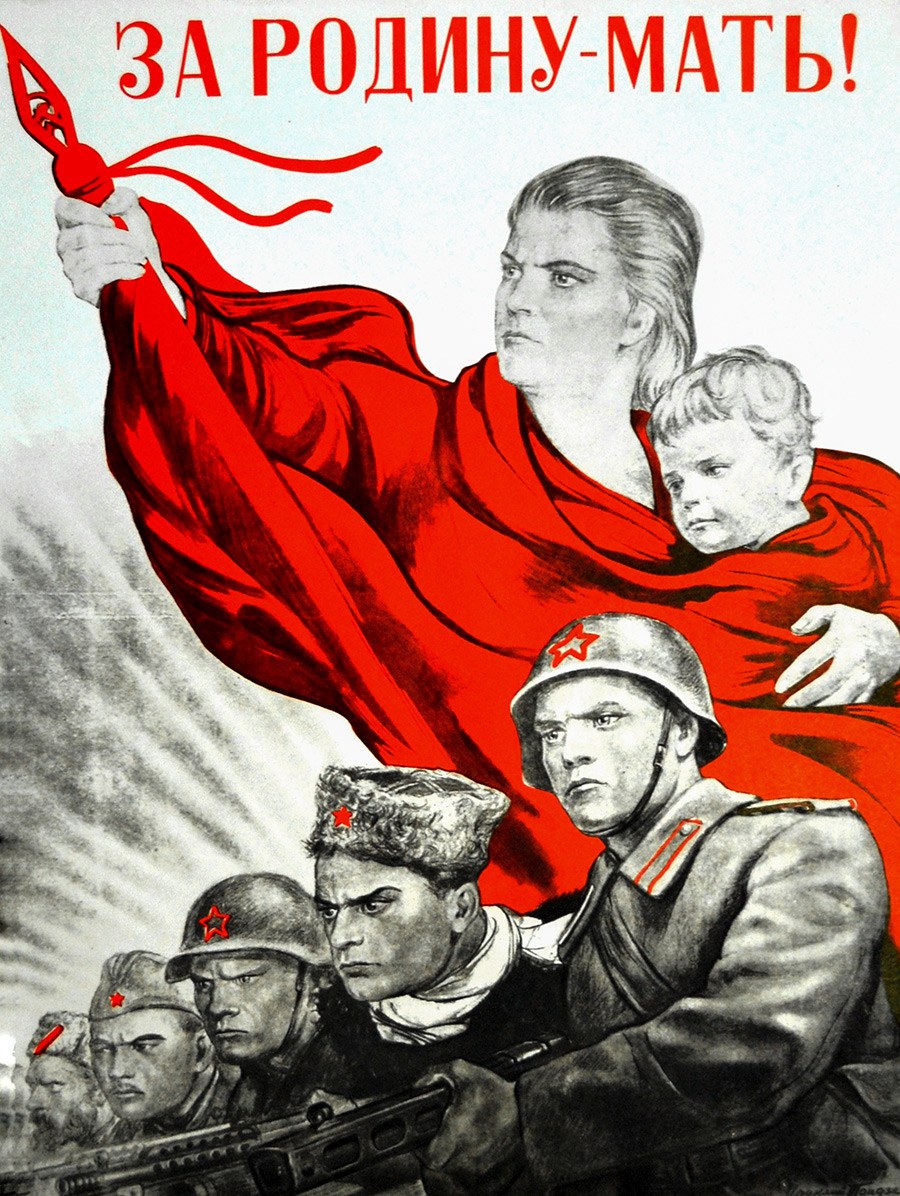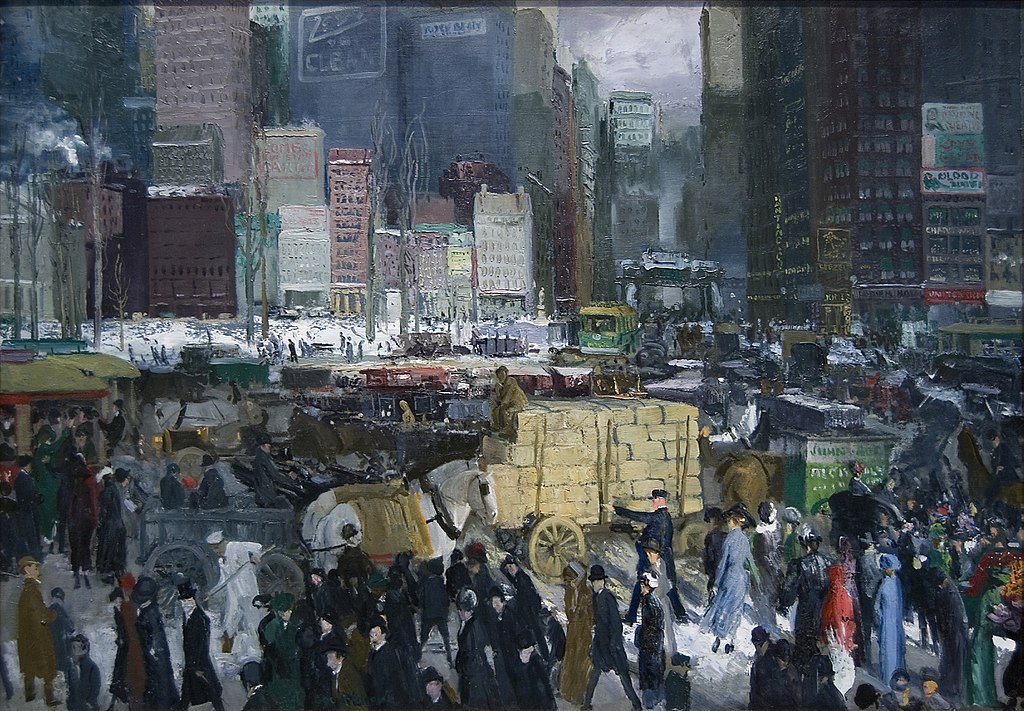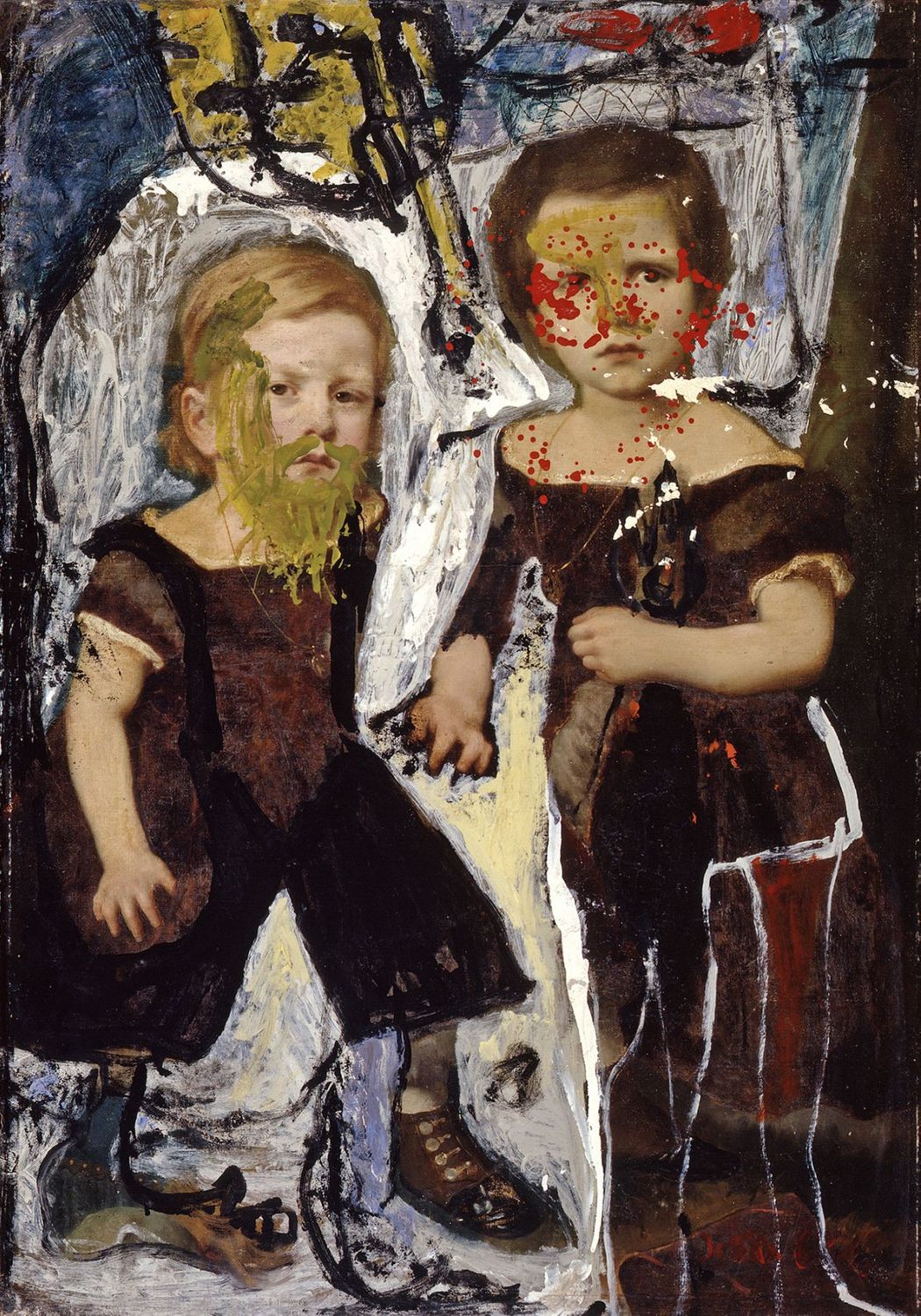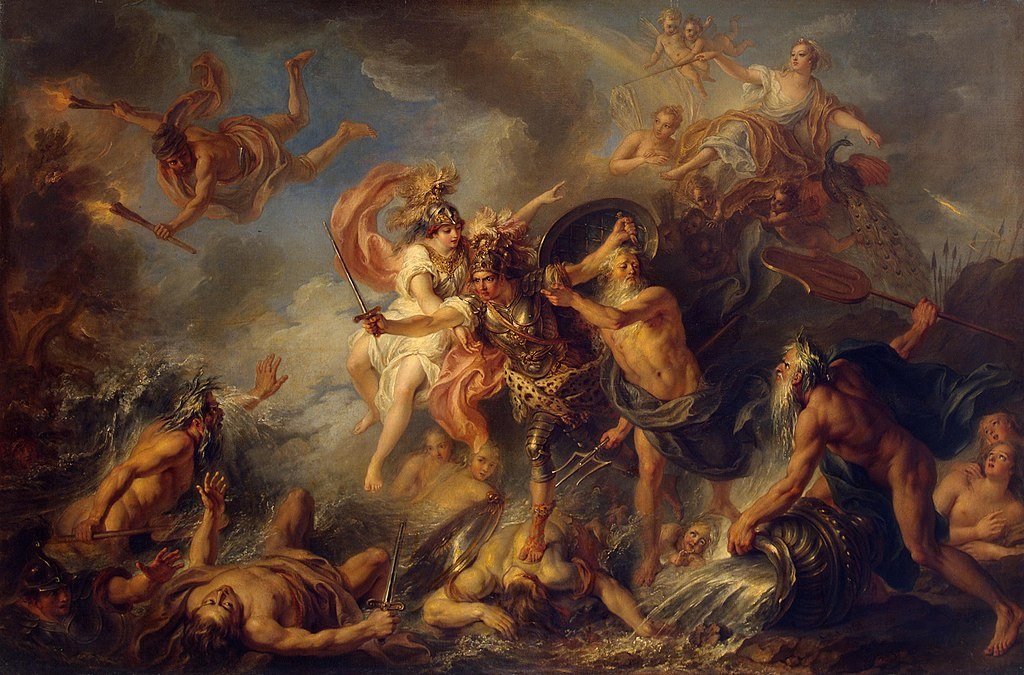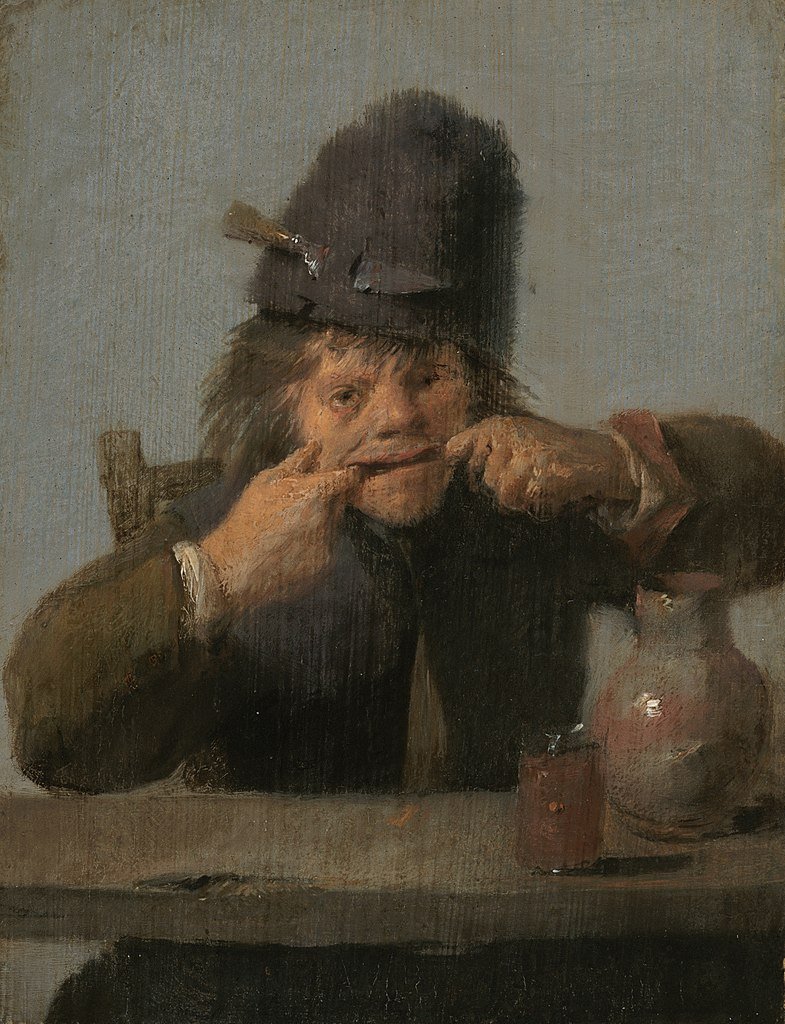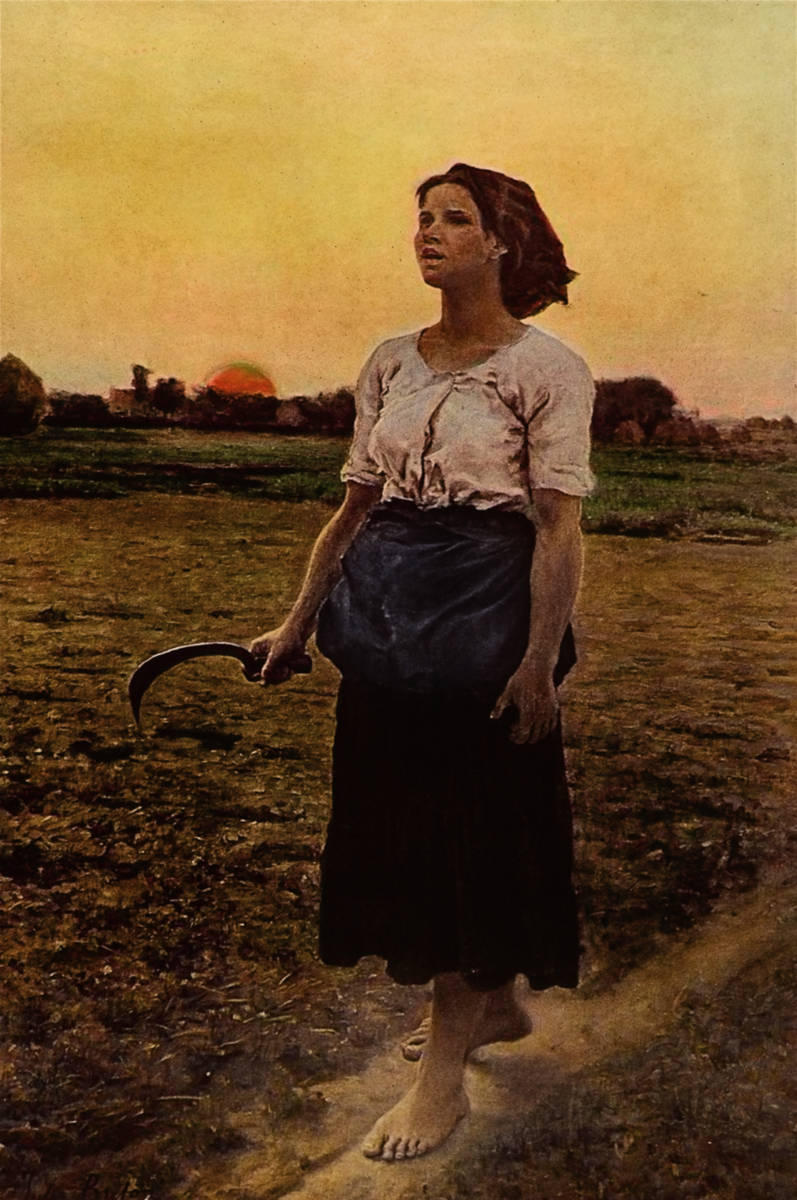We are so very pleased and honored to present this interview with Dr. Ciro Paoletti, the renowned military historian. Dr. Paoletti is the author 26 books and several hundred essays and reviews. He serves as General Secretary of the Italian Commission of Military History, and as Director of the Association for Military and Historical Studies. He is a Life-member of the Institute for the History of the Italian Risorgimento, a member of the (US) Society for Military History, a corresponding-member of the Instituto de Geografia e História Militar do Brasil, a member of the Società Dalmata di Storia Patria, and a member of the International Commission of History of Technology. In 2007, he was awarded the SMH Moncado Prize, which he holds along with two other Italian prizes. Dr, Paoletti curretnly works for the Education, University and Research Ministry. He is interviewed by Dr. Zbigniew Janowski, on behalf of the Postil.
Zbigniew Janowski (ZJ): You are a military historian, which, if I am not mistaken, is a rare breed. I can only think of three others: Jeremy Black (English), Donald Kagen and Victor Hansen (American), and you. The four of you also happen to be conservatives. Is there any relationship between your discipline and conservatism?
Ciro Paoletti (CP): I know many military historians who belong to the Left. Many of them may have chosen the Left to be successful in terms of their career. Others are believers. I have in mind a historian, who, when asked why he was a Leftist, candidly answered: “Because this allows me to say whatever I want, feel protected, and suffer no persecution.” However, whenever a historian melts politics into his work, the result is bad quality of work. If you want history to support your political ideas, you have to be a liar. If we don’t rely on facts, if we don’t reconstruct facts properly, and if we don’t present facts as they occurred, we do bad work, and the result is therefore quite bad.
ZJ: From what you said, I gather you consider history, not just military history, to be conservative by definition. Am I right?
CP: Military history and conservatism are not necessarily linked. It depends on the time one lives in, and on the political background. As things are, in this historical period, if one in the so-called West relies on facts, he is a conservative; it is a matter of logic. When you know how things happened in the past, and apply their schemes to the current affairs, you may easily realize how close Political Correctness (PC) is to the worst 20th-century dictatorships.
In Italy we had Fascism, as you know. Fascism altered a lot of things, provided its own historical versions and interpretations, but it did not alter – never – the content of books written in the past because they were not in conformity with Fascism. Communism under Stalin modified paintings, exterminated people when they became “enemy of the people.” The Soviets banned and eliminated books from libraries, the Nazi did the same and burnt books, but did they alter their content? No.
ZJ: Is there a connection between the former totalitarian approach to history and the new PC (politically correct) ideology?
CP: PC makes changes to the original version; It does it in some books, it does it in theater. Thus, how can an honest historian join the politically correct, if it’s based on the falsification of sources?
ZJ: Italians are the most historical nation in European history. As my older friend told me, everybody must study art history, except the Italians. They live in a “museum.” Does this “historical” experience translate into greater attachment to history? Here I want to make a distinction between being culturally conservative and politically conservative.
In the US, where I live, when I say that I am conservative, people almost instinctively think I always vote Republican. To me, to be conservative means to be conservative in the cultural realm, which, in my mind, is the only realm that truly matters. Political allegiances come and go, culture lasts. When you start changing the past, you wage war on the whole cultural heritage, going all the way back to our historical beginnings. The former totalitarians may have done it as a matter of expediency; today’s totalitarians condemn history as such, and find little in it to learn from. What is your take on this?
CP: Italians are instinctively traditionalist, and highly nationalistic. They don’t like sudden changes – but there has been a generational dramatic change since 2000. Historical heritage provides an instinctive common background, comprised of Rome, the Renaissance and Garibaldi. But there it stops.
Translated into politics, this means that the majority – with the exception of the young people – is surely conservative, for almost every-time a general election has been called, the higher the number of voters, the better the result for conservatism. But, as things have gone in the last twenty-five years, almost every time the Right won, the ballot result was turned upside down by political crises and rule went to so called “technical governments” which more or less pended to the Left. And these crises, which were called by the Right “palace plots,” allowed the Left to take power again.
Paradoxically, as things are today, the Progressive Left – composed of former Communists – Is tasked to keep things as they are, to keep the power as much as possible, no matter what the compromise and the related cost for Italians, whilst Conservatives are the real progressive forces. Unfortunately, as things went in early 1995, in 2011, and 2019, the majority of Italians think voting is useless, because, no matter how you vote and what the result, later “they do what they want.”
Young people today are the product of diffused technologies and related apps. The vast majority do not read; hence they do not think, and they vote according to how familiar this or that sounds. Thus, political propaganda is basically advertising: the easier the slogan, the easier to get the vote, even if there is an instinctive resistance to “inclusion” and what it implies. People can also rely on national heritage to justify the reaction to “inclusiveness;” but this reaction is not a consequence of the national heritage, which exists by itself.
ZJ: In the 1970s, we used to say – after Hayek – that there is a distinction between European and American Liberalism, because one could not apply the term Conservatism in the European sense to American reality: no monarchy. Accordingly, the European liberal was conservative in the American sense, and the European socialist corresponded to the American liberal, or, supporter of state intervention, state social programs. If you remember, Hayek even wrote a chapter, in his important Constitution of Liberty, “Why I am not Conservative” – and this, despite the fact that many conservatives claimed Hayek to be in their camp. Do you think that this lack of parallel between the terms – conservative, liberal, socialist – in America is still valid? If I may suggest, my impression is that because Liberalism – or what used to be called classical Liberalism – simply disappeared and became PC. As far as the economy is concerned, both conservatives and “liberals” or democrats are for big state, something inconceivable to liberals and conservatives of old.
CP: You are right, but it depends on a tricky misunderstanding that occurred many decades ago in America. The Leftists never attempted to call themselves Socialists, and sneaked in as “progressive Liberals.” But a look at American affairs allows you to realize that the Democratic Party has never supported state interventionism till F.D. Roosevelt – who copied it from Mussolini, who was and remained a socialist all his life – and, also after Roosevelt, the Democrats were never as progressive as they claim to have been. The conservative South traditionally voted for Democrats “because Lincoln was a Republican.” Thus, due to such a core of voters, how could the Democratic Party not be conservative?
Additional example: in Italy we had the Liberal Party. In 1848 it was at the extreme Left and Republican. In 1876 it got into power and was loyal to the king. In 1948, it sat at the right and was considered a conservative party for the next 50 years. The problem is that the name on the box often does not, or does no longer, correspond to what’s inside the box. In 18th-century Britain, being a Liberal simply meant to be a supporter of free commerce, thus to be a capitalist, no matter the cost for low-income and non-mercantile classes.
As things are now, so-called Liberalism claims to be different, but actually it is still what it always was, and again no matter the cost for low-income and non-entrepreneurial classes. All those other narratives about care, inclusion, the environment, peace and love, and so on, are only a nice package to let the worst and most greedy capitalism be accepted by the people.
The same goes for conservatives: conservatives are the real revolutionaries today, because conservatives want people to use their own brain, feeding it with education and culture, in order to think, and then to act according to their own decisions. Unfortunately, thinking means realizing how dangerous debt can be, and how useful saving is. Thus, thinking is not welcome by the current Liberals, because it may affect the market in an unpredictable way. What the market likes are standard-minded people, a society whose consumers are predictable – and thus planned – in order to minimize losses due to stocking costs and unsold items, and to maximize profits.
ZJ: In our private conversations, you often refer to America as Calvinist, meaning in broad historical terms, Protestant, as opposed to Catholic, meaning different attitudes towards private and social realms. Those attitudes today do not express themselves as theological differences, nor a religious vision on how to organize earthy existence, or work-ethics, as Max Weber would have it, but as social attitudes broadly speaking. One of the characteristic features of life in early Protestantism was insistence on certain socially acceptable behavior.
There were no libertines in Protestant countries, who would mock religion. Sin is evil and thus we must eradicate it. Today religion does not have much of a grip on our lives, but PC in America does. Since punishment cannot be postponed till after death, we use the power of the state – rules, regulations, ostracism to thwart social sins. The last three decades in the US saw unprecedented growth of regulations affecting human behavior, and confessions for saying something considered socially “unacceptable.” Our reality looks like Calvin’s Geneva, with sinners prostrating themselves before the public, expiating their sins. Do you see a connection between PC, which has assumed totalitarian posture, and what you see as American Calvinism?
CP: First of all when I say “Calvinist,” I mean exactly Calvinist, not Protestant in general, because Calvinists consider salvation as a gift; and, in order to feel safe, they think they can realize whether salvation has been conceded to them by looking at the success of their actions during their lifetime. The best measure of success is money: thus, the richer one becomes, the surest one is to go to Paradise.
Due to its Puritan heritage, the USA still relies on a Calvinistic background, and this is part of the explanation. Then I’d say that the current mind depends in part on the Deism of the 17th- and 18th-centurries. That is to say: be loyal, pay your debts, don’t kill, don’t steal, don’t be a liar, and be friendly to other human beings – and this depends on whom one perceives as human beings, because many deists, including Voltaire, got good returns on the money they happily invested in the slave trade – and this in part depends on a Calvinistic vision of sin and money. I have already mentioned money.
About sin, the problem was that no official absolution could exist, for it was Popish. In early America a person was judged by the community, and, when found guilty, punished. That’s why it is so important on one hand to strip some behaviors of their quality as sins – those related to sex – and on the other hand to still identify some “sinners” to go after. If a behavior is no longer a sin, that behavior is by definition correct and you are no longer a sinner.
Thus, a person who is rejected (but who is otherwise a good member of the community) is one who criticizes your behavior; for this criticism makes that person “ipso facto” wrong; thus, he is a sinner. On the other hand, if you have sinner to go after, it means your society still has a “moral code.” Thus, if it has a moral code, it is still a “good” society; and, when supporting such a code, you are “on the right side” (that is, of the community); and you act well when going after the “sinners” opposing such a code, because they are out of the community, and thus a threat.
Legal means may seem soft, but are becoming far less soft. As far as I know, if German parents prevent their child from learning what is taught about gender at school, they are fined and can be also jailed. But this is only in theory a punishment of the sinner. In fact, it’s just the same system the KGB used in case one missed the Komsomol meeting and, by the way, is just the same system used also by the Church in the Middle Age when one refused the globally accepted behavior.
The problem is that these fake liberties are in fact the surface of a dictatorship which, thanks to Facebook, Watsapp and similar things, is more and more controlling and conditioning every aspect of our life, to plan it as capitalism wants, and not as we want. And capitalism has no interest in punishing our soul after our death, because, first as things are, you can’t trade souls, for now. Second, your death would simply mean one consumer less, thus depriving the market of a client – excluding funeral houses, of course. No, capitalism wants us to behave all in the same predictable and planned way, and that’s it.
ZJ: To move on to a different but related topic: The Protestant Reformation. It is a great modern event, whose consequences we are feeling even now. The second greatest event was the French Revolution of 1789. It proclaimed equality of all. It was the end of the world as we knew it. Burke’s Reflections on the Revolution in France is a great document of the old frame of mind, which saw the end of a long epoch. It abolished not just the monarchy as a political system but delegitimized the idea of social hierarchy.
For about 150–200 years the world went on without noticing how destructive this is. it is one thing to say, everybody should share political power to a small extent, have the right to vote and influence politics, it is quite another to assert equality in the way it manifests itself today as “discrimination.”
CP: America and Americans are a consequence of their revolution, not of the French one. The latter abolished slavery; the former kept it. Both stated a deistic application of the Christian principle of equality. But in both cases the principle of hierarchy was preserved. I do not see the root of the idea of “discrimination” in the French Revolution. America kept discrimination alive. It did not change significantly till Martin Luther King, who was killed in 1968.
ZJ: Since you referred to slavery, would you agree that there is a difference of attitude in Catholic and Protestant colonialism for this every reason. The Spaniards and Portuguese were Catholics; the Dutch and British were Protestant. The Catholic Spaniards and Portuguese went to the new world without women; the Protestants fled the British Isles taking populations of villages – men and women. They were self-sufficient; they wanted to recreate their life in a New World on old principles minus the British hierarchy. The local population was a nuisance.
CP: The Spaniards started their colonization, wherever it was, as a military operation, thus no woman could go with them. The Portuguese started their colonization establishing trading posts to support their commercial expeditions, thus in this case too there was no room for women, at least at the beginning. The Dutch and the British were looking for free spaces to migrate. They emigrated with families. On the other hand, the French started their North-American colonization smoothly, as a commercial penetration, thus they allied with the Hurons, and converted them to Catholicism. As a result, there was no destruction of the local population in Canada, whilst it occurred in the 13 British colonies (as happened in a similar way in South America ruled by Spaniards and by the Portuguese).
America
ZJ: Let me move to 20th-century. Here is something that an American military historian, an expert on the Greek historian Thucydides, Donald Kagan, said in an interview for American Heritage: “In my view America represents something relatively new in history of international relations. We are the greatest military power in the world today and we remain the greatest economic power. There haven’t been very many times in the past when there has been a single power with so much relative strength. And we are still almost universally perceived to be what Bismarck called a satisfied power, happy with what we have, self-sufficient, not aiming to seize anything essential to others. We don’t represent the kind of menace that powers approaching our relative strength have in the past. I think there is a new set of rules for us: If America tries to exert leadership in the world, it can do so in many ways that are historically new.”
Kagan said this in 1997. It is hard to believe how much changed: September 11th and all that it entailed, financial crisis in 2008, and, above all, the rise of China, which in 1997 one could not mention as a threat to American hegemony. What, if anything, from what Kagan said still holds true about the position of the US.
CP: Kagan at that time probably presented the shared great American pride after the fall of the Soviet System, when everybody thought America to be unchallengeable. It lasted till September 11th, only a few years later. That America was “not aiming to seize anything essential to others” is something many countries could easily argue about, but my answer to your question is – not that much still holds true.
Rules to hold power are always the same, no matter the historical period and the geographical location. In case you may dispute it, it is about how much velvet to use for the glove dressing your steel hand, but that’s it. Americans still rely on Theodore Roosevelt’s statement: “Speak kindly, and bring a big stick.” The typical American likes very much the self-perception of America as the land of liberty – which in Academia no longer exists and is severely scrutinized by the progressive press and television – and of Americans as welcome everywhere because they bring democracy.
Well, in 1944 and 1945 they were perceived this way, but now? What do they bring? Political correctness? The Americans are not aiming to seize anything essential to others because they are at the top. “If America tries to exert leadership in the world, it can do so in many ways that are historically new?” Oh, please, which new ways? There are no “new ways;” there is, perhaps, only a new way for dressing and describing the old ways. But the core is the same used since the days of the Egyptians to now, passing through thirty or forty or centuries of human civilization everywhere in the world.
ZJ: To bring support to your claim I can invoke two examples. When Hilary Clinton went to India, she uttered her famous slogan, “Women’s rights are human rights.” When Barak Obama visited Ethiopia and Kenya, he was talking about gay rights. My Ethiopian friend was outraged and said: “Ethiopians have serious problems to worry about: poverty, brutality of the government, non-existence of a free press, a corrupt ruling class, rule of law, and Obama is talking about gay rights!” One can, of course, score some points at home by saying such things, but it shows Kenyans and Ethiopians that America offers no support for the people in Ethiopia and Kenya in their fight against corruption to bring necessary reforms in their countries.
When President Carter came to Poland, in 1977, he talked about violation of human rights, his wife met with the Primate of Poland, Cardinal Wyszynski. It gave us hope and created the impression that the US stands for universal values and supports opposition. In contrast to Carter, Clinton and Obama were the supporters of new ideologies.
Would you agree that the more the American mind is preoccupied with ideological thinking, the less effective it can be in shaping politics outside America, and this preoccupation weakens its own influence? What America exports now is ideology which, incidentally, is inimical to freedom. This attitude antagonizes many people in other countries. People in former communist countries in the 1970s and 1980s were looking up to America. Today, no one is looking up to America any more.
CP: I subscribe to everything you said. Americans have often a very poor perception of what happens outside America. if you look at the American press, you know all about the city, enough about the county, not that much about the state, or about the USA, and practically nothing about the world. Americans like to think that what works for them works for everybody and that everybody must be happy with it.
Unfortunately, it is not so. A politician, of course, thinks above all of re-election, and thus speaks in order to keep or enhance the number of voters. This is normal, but what Obama did, and what Hilary did, seems something, in a certain sense, different: they seem to have perceived themselves as the apostles of progressive evangelism, telling the people living in the darkness how to think, behave and act. They had no doubt about being enlightened, thus better. But this is what we are dealing with since the French came to Italy in 1796 – which, believe me, was not a good period; and they were hardly welcomed, given the popular armed resistance they had to face for a very longtime – and it is something we know well. Beware of it.
When you make a comparison between Politically Correct and Communism, you are not right; the real comparison is to Jacobinism, and, of course, since people are all but stupid, the result is just what you say: no one is looking up to America any more, except, in my country, the provincial-minded and not the cultured leftists, who think America to be the land of the best by definition. By the way, until 1994, these cultured leftists were all formally Communist.
ZJ: As you said, Obama and Hilary Clinton perceived themselves as the apostles of the progressive evangelism. This struck me, because I heard the same argument some 25 years ago from conservatively minded Poles: the liberal elites feel disdain for the uneducated, simple people. And, 25 years later, the same argument came to the fore in France, Britain and the US. Trump and Johnson came to power on the wave of popular dissatisfaction with the liberal elites who are suspicious of ordinary people. It is the same thing everywhere in the Western world. The liberal elites, like the Democratic Party in the US, claim to be on the side of “the people,” but any real contact with them terrifies them: dirty, primitive, uneducated and, therefore, stupid. Or, as Hillary Clinton called them – deplorables!
CP: Yes, deplorability. This is the term which tells you who we are dealing with. But this is also why I perceive Political Correctness as Jacobinism, and not as Communism. A Communist will hate you, but will rarely look at you from on high because you don’t share his opinions; and a Communist will never consider you as “nothing:” you are equal, but opposing, thus an enemy to be destroyed – which is easier, faster and safer than re-educating. But the Jacobins felt superior; they had all the arrogance of the authors of the Encyclopedia, the same arrogance Voltaire displayed. They claimed they were right because they were enlightened. Being enlightened – of course, according to their standards, agreeing with those standards – meant ipso facto to be superior. If you think of it, you realize also that Communism was a result of the Jacobinism, not much different from it.
I would add that the worst form of arrogance is the intellectual one. This is an infringement of the first rule of democracy: parity. No matter what the Politically Correct people claim to be, they perceive as unequal everyone who is not like them. Thus they in fact deny fundamental parity to those who are not like-minded. This is undemocratic.
America, China, Russia
ZJ: I would like to ask you about China, but before that I want to ask you about ancient historians, whom, I know you studied, as most military historians do. Whom among the Greeks and Romans did you read? And, how important are they for military history?
CP: They are very important for history in general, and they are the first Europeans who wrote what they knew, and thus our cultural identity is widely indebted to them. What did I read? Thucydides, Herodotus, Polybius and Epaminondas, Caesar, Livy, Tacitus, Sallust, and Suetonius, the last ones both in Latin and in translation. How important are they for history is well-known. In military history, well, just think that the military academies normally include the Greek and the Roman wars in their teaching, because neither strategy nor tactics has changed.
ZJ: The reason I invoked the ancient historians is that the Chinese Communists are interested in them. Xi Jing Ping read Thucydides’ Peloponnesian War. Books by European classicists, for example by the Jacqueline de Romilly who wrote about Thucydides, were translated into Chinese. Recently two books on Thucydides were published here in the US – Thucydides’s Trap?: Historical Interpretation, Logic of Inquiry, and the Future of Sino-American Relationship by Steve Chan, or Destined for War: Can America and China Escape Thucydides’s Trap? by Graham Allison. One can observe a renaissance of ancient authors, Thucydides and Polybius, in particular, in small circles of specialists and political decision makers.
Wouldn’t you say that there is no better recommendation than the fact that non-Western communists read Western classics?
CP: I agree with you, but I’d add something. They, too, wrote incredibly valuable books. So, if they are reading ours, it’s because the first rule of a commander is – know what, and how your potential – or not – enemy thinks. This is what the Chinese are doing; and this is what we are not doing, because I don’t think our decision-makers have read, for instance, Sun Tzu. And it is dangerous.
Then you ask why the Greeks, the Romans? Well, it would be best to ask the Chinese. I can only wonder why. Maybe because our mentality is still that of ancient times, and because Greece and Rome are the roots of our culture. But honestly, I’m not a Chinese political leader; thus, I don’t know. Also, I do not know how much Classical education in the West is dead, because I do not have an idea of how it is in other countries but mine. I know that in my country we still have to study Latin and ancient Greek during the five years of high school – in the classical lyceum – or only Latin, and also five years in the scientific lyceum. Of course, a lot of families don’t like Latin and Greek, and thus look for not so “useless” subjects for their children. Nonetheless, many others still study them; and this is something. As for the last question, it is highly possible that by not reading – not reading in general I mean – the new generation of Westerners is bound to lose to the Asians who are learning from our heritage. Unless we forbid the use Facebook, WhatsApp, and related chats, I don’t know what we could do.
ZJ: Should we – and by WE I have in mind many different “WEs” or us – be afraid of the rise of China for the same reason? In the case of the West, the rise of China as a world power is threatening because we fear that the Chinese mentality, world-view is incompatible with ours, particularly the idea of the relationship between the individual and the collective. We fear that if China becomes a world-power, collectivism will have to override Western individualism. Asian countries, on the other hand, whose cultures are closer to that of China, see the threat more in economic and military terms. African countries, where China’s presence is ubiquitous, see China as a force exploiting their countries’ natural resources. China allies itself with corrupt local authorities. Is there a common denominator in everyone’s fear; or, is the situation in each of the three cases different?
CP: The answer is yes to the first two questions. The problem is that I hardly see a way to react or to avoid it.
Let’s take the case of Poland, at least the case of Poland of ten years ago. I went to Wroclaw that year, because I was going to be appointed to the scientific board of a journal published by the University of Lower Silesia, and I complimented my friend who invited me on how Poland had improved in less than ten years. I remember quite well that during the meeting of the board, when discussing the distribution of the journal, my friend said that 10 euros (yearly subscription) was too much for students. I was surprised, but made no comment. The next day, I asked him: “If a student can’t pay 10 euros per year, how can families purchase what I see in stores?” The answer – you know it but I did not know it at that time – was: “Whatever you see on sale is very inexpensive in Western terms, and it all comes from China. It’s all made in China: pencils, pens, paper, cloths, shoes, all. Otherwise we could not otherwise purchase it.” So, the terms for Poland were: better to buy Chinese goods and get what you need, even if it is not of the best quality, than not have at all.
That’ s the core of the problem: China grew because it was – and it still is – competitive in terms of prices, because of her lower standard of li ving, and because now China is competitive also in terms of quality. As things stand, you can’t stop it, unless we introduce strong protectionism. But what will happen if, for example, China causes a collapse of US bonds? What then? America would crash in a month, or less than a month, or would go to war.
So, you can’t stop it, unless you have no state debt, a lot of raw materials making you potentially self-sufficient; or, you don’t care about your citizens’ standard of living; or, if you don’t care how your citizens react in case their standard of livinggoes plummets. And there is only one country in the world, today, in such a situation: Russia, and it stands together with China – thanks to the US.
ZJ: Is there a way to avoid it?
CP: There is no way. Rather, the question is how to survive. Only in a Japanese way: keep the standard of living relatively low, keep manpower cost relatively low, increase technological innovation in order to render national production more competitive, and reduce national debt.
In all four cases, this is very hard, if not impossible, to do in the West; and in Japan it works only due to their longstanding tradition of low standard of living, hard and prolonged daily work, and, above all, a national debt which, by law, can be held only by Japanese nationals. But we can’t do it, unless a major social U-turn happens, which nobody is ready for. Think of the French under Macron in the last 28 months.
The problem is that the Chinese have a centralized decision-making process, and we have not. In military terms, they have already won, because a centralized command is always far more effective than a non-coordinated one; and in the West, we are not-coordinated.
Hopes? None, or a very small one: the increasing social gap between inner China and coastal China. To be even clearer – coastal China enjoys far better standards of living than inner China. Coastal China is in relatively good condition as far as I know, as good as Poland could be in 1980. Inner China is far below, as far below as the Soviet deep countryside could be in the 1960s, or more. Now, the Chinese government knows this and must somehow fill the gap. A way to fill the gap is to open the inner market, increasing wages in some areas. This will heavily push production – thus incomes should increase.
So there is a slight, very slight possibility that, on one hand, this may push prices as high as needed to render Chinese goods less competitive on world markets; on the other hand, there is a slight possibility that once richer, the Chinese may be a bit less disciplined than they are now, and thus they could somehow start not to obey as blindly as they do now. But I don’t believe either the former or the latter scenarios. Moreover, in Germany and Italy, we have seen how effective the dictatorial control can be, even when improving standards of living; and back then, there was no internet, and no mobile networks. Think of mobile networks and the internet controlled by Hitler and the Gestapo!
We can only hope to be left alone, because, as things are, there is no way to stop them. Besides, with this stupid Political Correctness, I don’t think there is the smallest room to challenge China. America is fighting rearguard action: it’s trying to keep the advantage it still has in terms of technology. But for how long?
ZJ: Given what you’ve said, I have two related questions. Let me begin with the following. Liberal states with their hostility toward power are ill-equipped to fight or oppose the dominance of non-liberal regimes, like China. Any attempt to endow the State with more power is seen as “fascist.” The moment Covid-19 broke out, liberal journalists claimed that the extraordinary measures which some governments took, in Poland, for example, is a smokescreen to amass more power. In the US we heard the same rhetoric. Now, weeks later, when people want to leave homes, go back to work, restart economy, and, like in the US, start rebelling against stay-at-home orders, the same liberal media outlets which complained about the government amassing power want the State to go after those who want to relax the regulations.
This leads me to believe that the liberal idea of a weak state is untenable precisely because when a danger looms, the state must have considerable power to provide order, and it is never because of extraordinary circumstances. Such circumstances, whether they manifest themselves on a daily basis or not, they exist by the very nature of political existence. For example, we don’t fight wars on daily basis, but we maintain the military in case we go to war, and it would be impossible to organize the military overnight if a country were to be invaded. It makes me think that the liberal state can work only when there is no danger (be it Covid-19, or threat to national security), which is a rare or impossible scenario.
CP: The so-called liberals wants a weak state because a weak state cannot fight an organized massive opposition. A state can oppose better than a single person; thus, a state must be weakened; and liberals, as you say, accuse the states, which try to keep some of their natural powers, as being freedom-threatening and fascist. But this in their minds has nothing to do with state-power as such. According to them, the state should be a sort of waiter, providing all the needed commodities, while allowing them to do what they want, when they want, and the way they want. The State, according to them, should be a gadget to be used as they like. So, there is no paradox: they are quite coherent. It’s the idea of the state which is different. Their idea is not ours.
ZJ: What you said in your previous answer sounds like the West’s doomsday or even its death certificate. The 20th-century is often referred to as the “American century.” That century started with a very optimistic statement by President Wilson, known as a “doctrine:” “To make the world free for democracy.” Fascism and Nazism failed. Soviet totalitarianism disintegrated. But now America and the West are being slowly replaced by a very non-democratic China. Do you see in Wilson’s doctrine something naïve; an expression of typical American optimism; or, the unfolding of the Enlightenment idea that Reason, democratic egalitarianism, will win over tribal passions and national interests?
Second, do you think that Americans will learn a permanent lesson after what one can call a defeat in Iraq and Afghanistan; or, for as long as America cherishes its Enlightenment principles, it will commit the same mistake again? Last but not least, would you say that under Trump, America already changed in this respect, not because Trump has any doctrine, but simply because he is a pragmatic businessman who sees the world in terms of dollars, not ideas and ideals, and looks at politics as a tool, not as a science of moral principles.
CP: Wilson was an academic who had no actual experience in foreign affairs, and in politics other than in the USA. His principles were fine on paper, but think of how easy would it be to apply them in Danzig and neighboring area. And in Silesia? And what about Czechoslovakia, where Czechs were only half of the population? Had his been applied, as he stated them, in Poland, you would have the cities kept by Germany and in the neighboring country; in Dalmatia the cities, and only the cities, had to belong to Italy; the countryside would belong to Yugoslavia – it was a mosaic of people changing into a nightmare. It was impossible, because the countryside wanted also the city they relied on; and the city wanted to rule the countryside it relied on.
As for Afghanistan and Iraq, let’s start with the latter. A couple of American friends of mine, deeply liberal, voting Democrats, fully objected to the Iraq war. As she always said: “It’s only for the oil.” Then, from a military point of view, it started badly, because the US Expeditionary force was less than two thirds than what should have been. Thus, it was clear to everybody with a bit of military experience (including me) that from the very beginning they were going to face a lot of troubles once the offensive was achieved. Afghanistan was an additional disaster. Why? After September 11th the US needed to show that they were reacting, the faster the better. They needed a target. They knew where Osama bin Laden was and they attacked. Now, as military history teaches, nobody can seize and keep Afghanistan, nobody. That’s why the Czars never tried. The British left it unoccupied after having suffered many severe total military disasters every time they entered Afghanistan. Ok? And Moscow entered in 1979. You know how that ended.
Will they make the same mistake again? My answer is, Yes. But it does not depend on their military; it will depend on their politicians; and it has nothing or very little to do with the Enlightenment mentality, because in both cases the fight for democracy was only the badge and did not correspond that much to what was in the box.
ZJ: Ever since the collapse of Communism, Russia feels uneasy about what to do and where to go. Whatever Sovietism was, it gave them a sense of being a great power; and, of course, the victory over Nazi Germany strengthened the feeling of being a liberating force. (It did not matter that it was one totalitarian power fighting another totalitarian power). All that went hand in hand with the old idea of Imperial Russia. Then, 1991 came as a psychological blow; the colossus collapsed, but the huge territory remained. As you know, in Putin’s mind, the collapse of the Soviet Union was the 20th-century’s greatest disaster. Today, Russia’s economy is the size of that of Italy.
It leads me to think of a paradox. I gather Italy does not have imperial ambitions; it is not flying military planes, armed with nuclear weapons over Europe, and so on. But Russia does. Does Russia, Russians, or Putin live in an illusory reality? Is their perception of the world, first, based on the divorce between their real power and the illusion of power they have? Or, is historical reality so strong that it makes it almost impossible for the present generation of Russians to reconcile themselves that the world has changed. After all, Britain ruled one third of the world. It lost its Empire, but accommodated well to the new reality.
CP: Russia is a nuclear power; we Italians lost World War II. Thus, we were prevented by a treaty, and we had to renounce military ambitions. But we belong to NATO; and this dictates our behavior. Britain did not exactly accommodate to the new status. Britain was heavily forced by the USA to progressively renounce her world power status – the Suez intervention in 1956 and the Bermuda Treaty about nuclear weapons were the two major steps in Britain’s decline, both enforced by the USA. But Russia is too big to be forced, and has too many assets to be used, in order to survive.
Russia won last World War II, and thus got and still holds a permanent seat with the right of veto in the UN security council, which we Italians have not got. Russia has plenty of raw materials – which we have not, as Britain too practically never had – from uranium to natural gas, including crude oil, gold, iron and so on. Russia is overextended in two continents, bordering with China. And, not the smallest issue, Russian is still a communication language in many countries, as I saw in Prague when, in 1997, I realized a Czech captain was speaking to a Chinese colonel in Russian, and as I still realize when in the Baltic States, in Eastern Europe, or in Israel.
Whilst Britain, once she lost her colonies, remained a peripheral, relatively small island off the European Atlantic coast, Russia must exist as a world power, simply because it shares the border with China. Russia has no alternative. It must remain a world power or disappear; and this is, I think, what Putin has in mind; because I do not think anybody will prefer to let his own country disappear.
ZJ: I would agree with your last point. But on the additional supposition, that Russia’s interests are or could be co-extensive with our interests, I am not sure. However, as things stand today, Russia appears to prefer, or pretends to, a close alliance with China over America, probably to oppose America’s influence for the 1991 humiliation. But given the size of Russia’s economy, her alliance with China makes her look more like “a gas station” for China, whose primary purpose is to secure resources for itself.
You can say, and the argument seems valid, that part of the blame is the attitude of the Democrats in the US. It is mindboggling to see the Democrats running around and screaming at Trump because he wants to have a relationship with Russia. Even Steven Cohen, an American scholar of Russian history, is stunned by the Democrats’ attitude. The Democrats sound as if it was in America’s interest to continue the Cold War. None of this seems to get Russia onside the West’s cultural and political influence to oppose China.
CP: When the USSR collapsed, Russia found itself weak, and isolated. On the other hand, USA did their own best to help all the former Soviet nationalities to get their independence. Hence the USA was perceived still as an enemy destroying Russia; for in Moscow’s mind, Russia and the USSR were basically one and the same. When that process ended, Russia found itself weaker than in the past, hugely indebted, and still alone, sharing an incredibly long and impossible to defend border with an increasingly powerful China. What to do?
After what just happened, Russia could not rely on the USA, and had to find a solution. China in that moment was not a threat and, according to the old rule, “if you can’t fight them, join them,” Moscow signed the Shanghai Pact. The consequence – both partners felt their back was safe. An important Chinese general in 2007 in South Africa clearly and officially said, in an international conference I attended, that China appreciates nothing better than harmony, and harmony leads to happiness; and the Shanghai Pact was aimed to keep harmony, thus rendering everybody happy. As I later wrote in the Italian Navy Journal, this basically meant: “We want to run our own business according to our own mind. So, please, don’t intrude, or you will be against harmony, and the Pact will be turned against you.”
I do not know when, and if, Russia will be compelled in the future to choose whether to break harmony and survive, or submit to Chinese hegemony and become a satellite. But it is certain that, as things are, if the USA does not take a different approach, the relationship between Washington and Moscow will hardly change. I remember well the terror that existed in Eastern Europe in many countries, before the last US presidential election – because everybody considered the election of Hilary Clinton as the trigger for a war on Russia, with their countries in the middle. Nobody forgot that the USA entered both the World Wars led by a Democratic president, who had been re-elected promising to keep peace. It is something some Democrat should keep in mind.
ZJ: Are you saying that European alliance with the US is not necessarily in the interest of Europe and that Russia’s flying her planes over Europe is a benign exercise.
CP: Please don’t rely on the American vision: America, seen from here, did her own best to destroy Russia, and went further than strategically needed. Yugoslavia had to be dissolved, for it could no longer hold as it was. But there was no need to attack it, as was done in the 1990s, thus creating that ghost named Kossovo, and the other ghost called Bosnia, after a bloody civil war, and compelling NATO to keep its forces there for 30 years. But if it was done, it was only to deprive the Russian fleet of a possible port on the Mediterranean. That was the only reason for that war: democracy and self-determination were empty words. Now, try to see who the Serbs perceive as being closer to them – Washington or Moscow. And the answer is, Moscow, and right in the center of the Balkans! Wonderful result!
What do you think that many Poles thought? Do you think that they were supportive of the American initiative in Kiev? Not at all. Poles know quite well that in case of war, they will be alone in facing Russia, because, as the press reports, the Germans have exactly 16 effective aircrafts – 16, no kidding – and far less tanks then the Polish Army has; and in Warsaw nobody seriously thinks the USA is ready “to die for Danzig.” And what did the Americans do? The Orange surge in Kiev; and why? To establish in Kiev a government whose first declared task was not to renew the lease of Sebastopol to the Russian fleet! Could whatever person with a working brain think Putin would just happily accept the loss of such an asset? Could Putin agree to such a change? What do you think the USA would do in case a party in Italy would run saying, Let’s kick out the 6th US fleet from Naples and the Mediterranean?
I have heard with my ears Poles terrified by the perspective of an Orange success in Kiev, for that meant war on Russia, and many others in Romania, Bulgaria, Poland and the three Baltic States were frightened by the possible victory of Hilary Clinton – for that, in their mind, meant WAR, with Poland alone in the first line. Putin is no choir-boy. But the Americans, my goodness, they did their own best to push him in the corner where he is now, to push him to find an agreement with China, and now they complain!
We are losing tens or hundreds of billions of euros to be loyal to the NATO-imposed – thus American imposed – commercial embargo on Russia: does the USA care? Not at all. We, not USA, gets damaged. Obama left Iraq to be devastated because it was a former Russian ally; and then he did the same with Assad; and when Syria – which is flooding us, not America, with her refugees – after years of not ending war – asked for help, and Putin said, Yes, for he could not decently refuse to support a longstanding ally, what did Washington do? It said “Oh-oh, this is unfair.” But when Syrian people were massacred by the war, was that fair? And why did it happen? In the past 30 years, it seems that there was not a single day when Washington did not try to destabilize Russia once and for all – and this is the result.
Russia would like to come to an agreement, but America prevents it. I know that one can’t trust the Russians, but, for Heavens’ sake, when did we, the West, offer them one – I say just one – opportunity to show how reliable or unreliable they can be? Never! That’s a very bad and shortsighted policy. Only the Americans can think that it is only a matter of Russian goodwill. It is a matter of nonexistence of American goodwill. That’s it!
You say, Russian planes fly over Europe, and close the US coasts? And what does the USAF do? It patrols along the Russian border, just above the line of the Russian border? Who started first, guess… the Americans. Putin is reacting, due to many reasons, to show his Chinese allies that “he can,” that he is not the weak member of their dual alliance, to let the USA realize that he will not surrender, and that “he can stand up,” and provide evidence to his people that they are still under threat. Thus, the current situation – bad or good – has to be kept due to the external threat. And the problem is that, as things have been and still seems to be, he is right, because the external threat does exist – from America.
America wants – Russia destroyed, the European Union weak and disbanded, and China falling. As American policy is going, they may have the EU going down, but no success with the others. Thus, if they do not offer Putin a good compromise, a good loyal offer, they won’t achieve whatever result they want. And whilst Trump could, the Dems won’t; and you will see the result.
ZJ: Henry Kissinger’s view was that America in the late 1960s and 1970s was a declining power, and the best thing America could do was to contain the Soviet Union by agreeing to the division of the sphere of influence between the US and Soviet Union. Zbigniew Brzezinski, National Security Adviser under Carter, devised a different policy: using human rights as a weapon to build opposition in the Soviet empire and hold the communist governments accountable for their violations, and indirectly and slowly weaken communist grip on society.
After the collapse of communism, the sphere of America’s influence spread; but it spread exactly at the time when America entered the phase of its moral decline: its economic model – living on credit which was in perfect agreement with the hedonistic values of the society – led to unprecedented debt, which, as you remarked, makes it even less possible we can build a sensible opposition to China.
So, we moved from the world being split between America and the West and the Soviet Union, to the West and America being ripped apart by unprecedented debt and lack of ideological cohesion which makes it impossible to build an opposition to China. Does America have an attractive message to its allies and other countries, who are afraid of China as well, that could unite them today?
CP: No. It once had one; but now no longer does. Political correctness is not a message; and its rules seem to push people far away from America instead of becoming close to America.
ZJ: Hence my last question. Does China have an attractive message? Before you answer my question, let me read to you something that Xi Jing Ping said in 2014: “The Soviet Union collapsed because nobody was man enough to stand up and resist [its downfall]… Constitutional monarchy, imperial restoration, parliamentarism, a multiparty system and the presidential system – we considered them, tried them, but none worked.” You can contrast it with Churchill’s “Democracy is the worst form of government, except for all others.” Was Churchill too optimistic, as was Pericles in his funeral oration during the Peloponnesian war? Are Xi Jing Ping’s words the next superpower’s message to the world?
CP: A mistake usually made in the West and above all in America, is that of thinking of the others as compact. Europe is not compact – think of the differences among the different European peoples – and China too is not, and it is big, enormous, and, till now, the most populated country of the world. Can you imagine what if all the ethnic groups would start acting with the same freedom we have in the West? Divisions, quarrels, differences, and who would settle them? They would soon be back to the War Lords time, or something like it; and that was a very sad time. We cannot, and we must not think that what works for us, here and now, may suit the others in the same time, and in another part of the world, because this is just the mistake Political Correctness does: it’s right, it works here, hence it must be exported everywhere. That’s wrong.
Some years ago I met an American based in London, who had a deep knowledge of the Far East and he had to agree with me when I told him that we can’t export democracy; we can’t enforce other people to accept democracy, because if they want not to have it, there is nothing to do, and we can’t go to war to impose democracy. This is America’s biggest fault – to believe that the American way of life can work everywhere, and thus must be exported and, in some cases, enforced. As long as it was a sort of shared idea, it could be neglected. But for the last 25 years, it is no longer so. It was officially stated by Warren Christopher in an article published in 1995 in Foreign Policy. Christopher wrote that the post-USSR-collapse situation presented the USA with an exceptional opportunity to shape the world according to their standards. His idea was based on four points; and the fourth was the support for democracy and human rights, according to American interests and ideals. Soon thereafter, senator Robert Dole also published an article – “Shaping America’s Global Future.” He said basically the same things Christopher said. Thus one could conclude that, no matter the party ruling the country, that policy had to be the future American policy.
So, back to China, why should the Chinese accept to share American standards, if those standards can’t be safely applied to their country? Primum edere, deinde philosophari – Food first, then philosophy. After that, many other things can follow.
ZJ: Dr. Paoletti, thank you for your time.
The image shows “Fury of Achilles,” by Charles-Antoine Coypel, painted in 1737.

